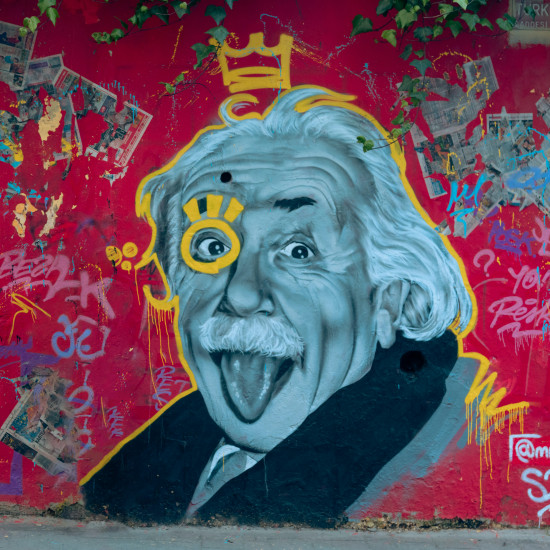
Author: Jeff Haden for INC.com
When Albert Einstein graduated from college in 1900, he struggled to find a teaching job and took a job at the patent office. (Einstein, too, had to start somewhere.) This job, in the time-honored tradition of paying his dues, served to cover his bills while he published four groundbreaking scientific papers and earned his doctorate in 1906.
By 1912 he was already widely known - at least in the scientific community - as an outstanding theoretical physicist. A big fish? Sure, but in a really small pond.
That's why he took a step back and took stock of his career. Generally speaking, he was, shall we say, a generalist. What if he had focused on one thing? What if he had applied non-Euclidean mathematics to his own work on general relativity to account for the influence of gravity? For the next three years he did. That's all he did. (He later claimed that his hair turned white from the stress.)
In 1915 he published his theory of relativity, arguably the greatest scientific achievement of the 20th century.
Einstein's law of focus
As Cal Newport, author of So Good They Can't Ignore You, writes (well worth reading):
Einstein's advocacy of general relativity points to an important fact about achievements. We are most productive when we concentrate on a very small number of projects to which we can devote a great deal of attention. The achievements that are worthwhile require hard work. There is no shortcut. It takes effort over a long period of time.
In a perfect world, we would all be Einsteins. Each of us would have only one or at most two projects in the three main areas of our lives: work, extracurricular, and personal.
Of course, it is not easy. We all tend to be generals, even if not by choice.
Career, family, friends, personal interests - we have a basket full of diverse tasks. And so are our lists.
As Newport writes, the result is as follows:
"We are no longer able to focus on a small number of important projects, but instead rush between an increasingly crowded list full of different responsibilities. This time crunch can prevent real accomplishments.
Imagine if Einstein had kept a blog, written a book, joined several clubs, and tried to master rowing at the same time he was working on general relativity?"
We would still be living in the era of Newton.
Newport's solution?
Step 1: Create three columns: professional, personal (family, friends, etc.), and extracurricular (side projects, personal goals, etc.). In each category, list everything you do.
Step 2: Choose one or two items from each list that are the most important (and hopefully the most profitable) and put a star next to them.
Step 3: Identify the items you could stop doing today without suffering any real consequences and cross them off. Think of this step as pruning.
Step 4: Look at the unmarked items and create a one- to three-week plan to complete them (or get away from them). It might mean not working on starred projects for a short time, but that's okay. Think of this step as weeding out the weeds.
Step 5: Focus on one or two important things that will remain in each category - and be ruthless about not adding any new items to the list, at least for a while. Just keep working on the list.
Eventually, you won't resist the temptation to take on new projects. A range of goals is inevitable for people who expect a lot from themselves. Somewhere along the way, you'll have to go through the whole exercise again.
And that's okay, because it works.
Ask Warren Buffett:)
Buffett's Law of Focus
Buffett walked pilot Mike Flint through a simple exercise: list your top 25 career goals, then circle the 5 most important ones.
Buffett reportedly told Flint to focus solely on achieving goals 1 through 5 and to avoid working on goals 6 through 25 altogether (the 25/5 rule). Why? You can't do 25 things well. To work on 25 things is to do very little on each of them.
It's easy to come up with five things you really want to do. But it's even easier to get distracted from actually making progress on those five goals because you get carried away with the excitement, the joy, the temporary pleasure of things that just aren't that important.
Try it. List all your goals: professional, personal and extracurricular. Choose the two most important ones from each. Cross out the ones that don't matter or are more made-up than real.
Because if you tell yourself you want to run a marathon, but you only run once every week or two, it's a dream, not a goal.
Then make a plan to complete the remaining items in each category. Or, if they are permanent: for example, you want to spend more time with your non-nuclear family - make a plan to ensure that happens regularly.
And then put your head down and focus on the tasks, projects or goals that really matter.
As Newport writes, "Productivity purging is an essential part of project gardening. Doing them regularly keeps you focused on what's important. After each purge, you have at least one month during which you can work seriously on a small number of projects."
In this way you will eventually make progress in those activities that may eventually become vital.
Author: Jeff Haden
Picture: Bakhrom Tursunov, Unsplash
Back to blog